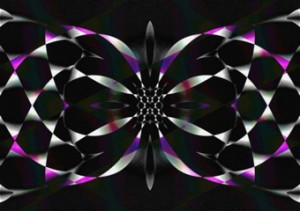Progress or Regress (Article 15)
By Nir Menussi: April 22, 2011: Category Inspirations, Networks of Meaning
Integrating Science and Mysticism (The Kabbalistic Multiverse, Part 4)
 The broad-stroked analysis of science’s history that we conducted in the previous two articles enables us to answer one of the most pressing questions plaguing modern culture: has science ultimately improved our lives or has it made them worse? Has it advanced us or taken us backward?
The broad-stroked analysis of science’s history that we conducted in the previous two articles enables us to answer one of the most pressing questions plaguing modern culture: has science ultimately improved our lives or has it made them worse? Has it advanced us or taken us backward?
Some people answer this question with a simple and definite “yes” or “no”. The strictly “yes” repliers are hardcore modernists who are grateful to science for exorcising the various metaphysical beliefs of previous generations; the strictly “no” repliers are religious people who are critical of science—for precisely the same reason. Both of these groups spend endless hours arguing with each other, not realizing they’re missing out on having much more fruitful (albeit less easy) discussions with the much larger third group standing between them: the “yes-and-no” repliers.
The “yes-and-no” people, who by nature are more moderately tempered, claim the scientific age has many benefits, admit it has also many drawbacks, and preach for separating the former from the latter. Science is the best tool around to understand nature and create beneficial technology with, they state, but if abused it fosters a materialistic, shallow society and creates destructive technology.
Going along with this third group, we can use the Kabbalistic Multiverse to place our finger on the exact reason science is both a major advancement in human history (as modernists claim), and a decline (as many religious people claim).
The reason science is a step of advancement is that the world-view of Action is the most appropriate one for understanding empirical phenomena, and it was heavily underdeveloped before science. When we think of the Kabbalistic Multiverse as referring to actual levels of reality rather than merely perspectives of reality, then our physical universe is defined as the world of Action (or at least part of it). It is therefore Action’s world-view—the interpretation of the universe as governed by naturalistic causality—that gives the most precise and true-to-the-facts accounts of physical occurrences. Since modern science is the first to provide us with such accounts, and to do so prodigiously and consistently, it has hugely advanced our understanding of the world.
The reason science is a step of decline is that the world-view of Action is the lowest of all world-views, and science makes it the sole presiding one. By ‘low’ here we mean the most entrenched in corporeality and the senses, and the least open to spirituality and faith. When the world is explained solely according to Action terms, it is seen as a purposeless cluster of atoms which sometimes clump together to form complex organisms who briefly dream they have souls. No validity is given to the experience of a spiritual dimension to the world, let alone to the faith in an almighty Creator behind it. The scientific age robs us of these and leaves us lost and alone in a universe of matter and chance, unable to even relate to words like ‘soul’. While science has advanced us intellectually, it has also dragged us backward spiritually.
Connecting the Worlds
As we can see, identifying science as the world-view of Action explains how the two polar-opposite opinions regarding it came about. It also reveals that both of them have a certain truth to them: the world of Action is both an integral part of the full worlds model and therefore addressing it is a step of advance, and it is the lowest world and therefore making it the major one is a step of decline.
By recognizing this, we come to a better understanding of what the vision of unifying science and Torah means (‘Torah’ standing here for the sum total of true religious knowledge, as explained previously). It means resurrecting the abandoned world-views of Formation and Creation (and Emanation, of course, but we haven’t gotten to that yet) and attaching them to the world-view of Action, thus imbibing it with higher meaning and value. Constructing the world-view of Action has been a tremendously important step, but it was placed in lieu of the equally important—albeit for different reasons—world-views of Formation and Creation. Since each world is lacking when not complemented by the others, a truly full understanding of the world must contain all of them.
By reconnecting the scientific worldview to the higher, spiritual worldviews, we would synthesize the first truly full picture of the world. We would unify the universe, the cosmos and creation into a single whole, with God residing above it and suffused within it.
“Even Made”
The idea that dealing with the world of Action is both vital and perilous is echoed strongly in the Kabbalistic characterization of it. If you’ll recall, the original Biblical verse from which the names of the lower three worlds were taken said: “All that is called in My name and for My honor, I have created it, I have formed it, I have even made [=acted] it”. Between the world of Formation and that of Action, a new word appears: “even” (this word stands out in Hebrew much more than it does in English, since in Hebrew the phrases “I have created it”, “I have formed it” etc. are made up of but a single word each).
According to Kabbalah, the interjection of the word “even” (“af” in Hebrew) stands for a sort of dark ‘screen’ separating the world of Action from the worlds above it, and making it liable to disconnect from them. On the other hand, the literal meaning of the phrase “I have even made it” seems to be the very retort to this: it says, ‘even the lowly world of Action is of my own making’. I seem not to be there, but I am. Search, and you will find Me’.
 This duality seems to suggest the following: that while modern science is the most secular and anti-religious force in history, it also holds the greatest challenge and promise. Were we to discover God in the scientific worldview—the most advanced, consistent and complete we have yet to formulate—we would witness that He has “even made” it: that He is there even in that layer of the worldview that is apparently farthest away from Him. By doing so we would finally, truly, bring God down to Earth: discover Him in the most earthly of realms.
This duality seems to suggest the following: that while modern science is the most secular and anti-religious force in history, it also holds the greatest challenge and promise. Were we to discover God in the scientific worldview—the most advanced, consistent and complete we have yet to formulate—we would witness that He has “even made” it: that He is there even in that layer of the worldview that is apparently farthest away from Him. By doing so we would finally, truly, bring God down to Earth: discover Him in the most earthly of realms.
http://www.interinclusion.org/inspirations/a-loss-for-worlds-article-16-2/
Progress or Regress (Article 15) ,






















;)
;)
;)
;)
;)
;)
;)
;)
;)
;)
